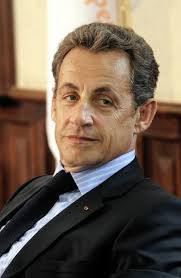Examining the Legacy of French President Nicolas Sarkozy

Introduction
Nicolas Sarkozy, who served as the President of France from 2007 to 2012, has remained a significant figure in French and European politics. His tenure is marked by bold policies, controversies, and a complex legacy that continues to shape discussions about governance in France today. Understanding Sarkozy’s impact is crucial for grasping the dynamics of modern French politics and the shifting landscape of Europe.
Key Policies and Achievements
During his presidency, Sarkozy implemented a series of reforms aimed at revitalizing the French economy and strengthening France’s role within the European Union. One of his primary achievements was the adoption of the ‘Sarkozy reform agenda’ which included reducing the number of public sector employees, increasing the retirement age from 60 to 62, and implementing tax cuts. These measures were designed to enhance France’s competitiveness in a global economy facing significant challenges.
Furthermore, Sarkozy played a crucial role in international politics. He was a key player in the 2008 financial crisis, advocating for a coordinated European response to prevent a deeper recession. His leadership was also evident during the Libyan Civil War, where he pushed for military intervention, resulting in the overthrow of Muammar Gaddafi. This intervention, however, draws both praise and criticism and remains a controversial aspect of his legacy.
Controversies and Criticism
Despite his achievements, Sarkozy’s presidency was not without issues. His authoritarian style of governance and controversial policies often sparked protests. The 2010 pension reform led to widespread strikes and demonstrations across France, highlighting public discontent with his administration. Additionally, Sarkozy faced allegations of corruption and impropriety, which have continued to haunt him even after leaving office.
Conclusion
Nicolas Sarkozy’s presidency was marked by a blend of ambition and controversy, leaving a complicated legacy. His economic reforms and assertive foreign policy strategies had lasting impacts on France’s position in Europe. As Sarkozy continues to influence French political discourse, understanding his presidency helps elucidate the ongoing challenges faced by current leaders. The debates surrounding his policies and governance style remain pertinent as France navigates its post-Sarkozy identity and the evolving landscape of European politics.









